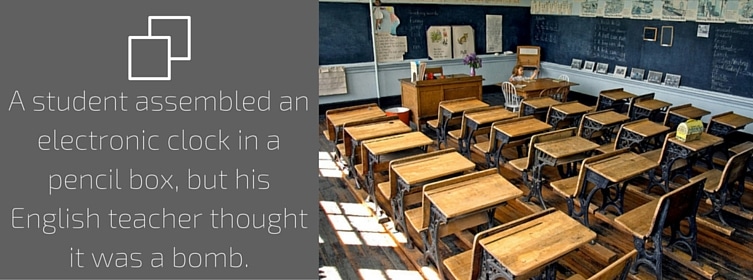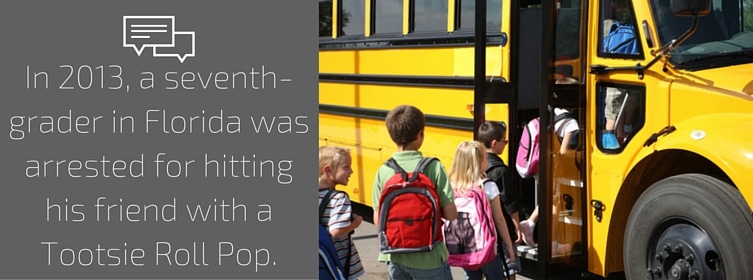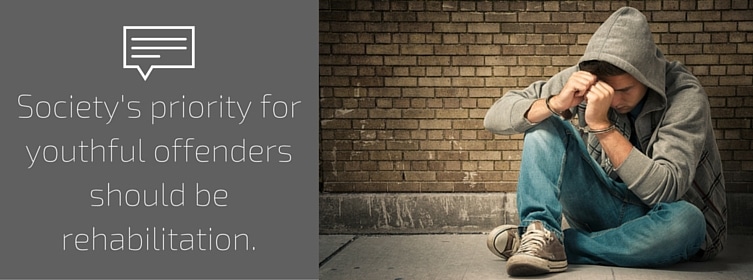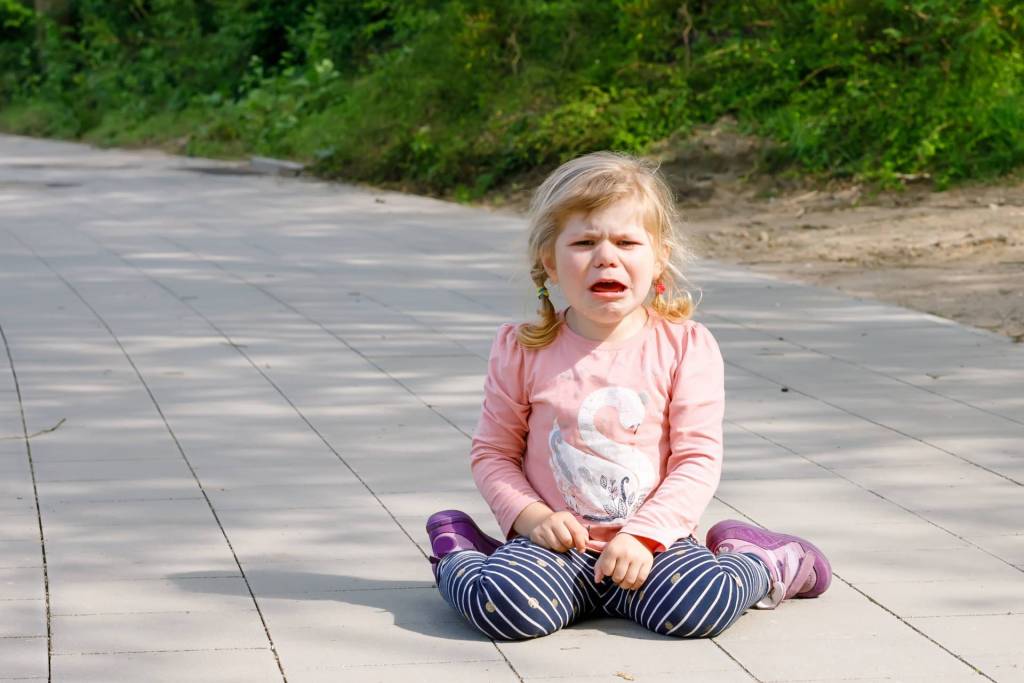It is generally accepted in all parts of the world that children not only make more mistakes than adults, but children are also held to be less accountable for their mistakes than adults. Almost every culture and society holds that children should not receive the same punishments and penalties for their offenses and mistakes as adults committing the same offenses and making the same mistakes. In the past, many of the minor offenses committed by juveniles were considered a private, family matter, and discipline was left to families unless a juvenile clearly committed a criminal offense like shoplifting or car theft. More and more frequently, however, the government and the criminal justice system in the United States are intervening directly in matters that were once the exclusive concerns of families and perhaps school authorities. These days, we can and do arrest kids for virtually anything, including completely normal childhood misbehavior. In fact, many young people come into contact with their first handcuffs in school.
The recent case in Texas involving a middle school student and his science project is just one example of the overcriminalization of juveniles that is slowly becoming accepted and routine in our schools and in our criminal justice system. In this incident, a ninth-grade student with a knack for engineering decided to make his own clock and take it with him to school to impress his engineering teacher. He assembled the parts of an electronic clock in a pencil box, but his English teacher thought the clock resembled a bomb, and it was ticking audibly. The teacher confiscated it and reported the student to the school’s principal. Local law enforcement was called and the young man was questioned by police for an hour and a half, handcuffed, and taken into custody, where he was not allowed to see his parents. The young man was subsequently transported to a juvenile detention facility where he was fingerprinted and his photograph was taken. He was then released to his parents.
While that particular case has several aspects, what concerns criminal defense attorneys is the overreaction of law enforcement authorities in this and a number of other situations involving children and teens. No one listened as the student tried to explain that his science project was a clock and not a bomb – a fact that could easily have been confirmed by the right police officer if not by the school’s own engineering instructor. Before anyone was arrested or fingerprinted, the young man’s story could and should have been checked out. Furthermore, there are virtually no conceivable circumstances where a youthful offender should be prevented from communicating with his or her parents.
OVERREACTIONS ARE FAR TOO COMMON
The Texas story made national news, but overreactions by law enforcement officials happen far too frequently all over the United States when children and schools are involved. A 12-year-old New York City junior high student was arrested in 2010 for doodling on her desk with a marker. The girl was taken in handcuffs to a police station. Also in 2010, an 11-year-old girl in Georgia was arrested for carrying ibuprofen to school. In 2013, a seventh-grader in Florida was arrested for hitting his sixth-grade friend on the school bus – with a Tootsie Roll Pop. And early in 2015, when a Florida eighth-grader hacked into a teacher’s computer – and posted a desktop picture of two men kissing – the student was charged with a felony. These cases are merely a sample – hundreds of similar incidents can be cited.
Probably none of these cases should have made the news or even come to the attention of law enforcement. In the Texas case, let’s assume the worst scenario – that the student’s clock actually was a bomb. Once it had been confiscated and disarmed, there was absolutely no reason to treat him as anything but a routine juvenile suspect with legal rights that the criminal justice system is supposed to protect and uphold. For starters, he should have been allowed access to legal representation. In the 1967 case of In re Gault, the United States Supreme Court held that juveniles accused of crimes in a delinquency proceeding must be afforded almost all of the same due process rights as adults, such as the right to timely notification of the charges, the right to confront witnesses, the right against self-incrimination, including the right to remain silent, and the right to legal counsel.
THE RIGHTS OF JUVENILES
Although it was decided in 1967, In re Gault began in 1964, when the sheriff of Gila County, Arizona, took fifteen-year-old Gerald Gault into custody without notifying his parents after a neighbor complained of receiving an obscene telephone call. With no witnesses having been sworn and no access to legal counsel, young Gault was sentenced by an Arizona judge to confinement in an Arizona state juvenile facility until he turned 21 – that is, for more than five years. An adult convicted of the same charge would have served no more than sixty days and would have been fined no more than $50. Gault’s parents petitioned the Arizona Supreme Court for a writ of habeas corpus to obtain their son’s release. The Arizona Supreme Court found that the original Gault proceedings did not violate due process, and the family appealed to the United States Supreme Court. In their 8-to-1 decision, the justices ruled that Gault’s incarceration was a violation of the Sixth Amendment since he had been denied the right to legal counsel, had not been formally informed of the charges against him, had not been told of his right against self-incrimination, and was provided with no opportunity to confront his accuser.
In the 18th and 19th centuries, few legal differences existed between children and adults in Great Britain and North America. Young children were considered productive members of the family, and children as young as seven were treated as adults by the courts. Early legal debates centered on whether there should be a separate legal system for punishing juveniles, or if juveniles who committed crimes should be handled in the same manner as adults. In 1899, the state of Illinois became the first to recognize in law that children who are offenders require special treatment. Illinois became the first U.S. state to establish a separate juvenile justice system.
MODERN JUVENILE JUSTICE
Other states followed quickly, and throughout the 20th century, juvenile court systems focused increasingly on rehabilitation rather than punishment. Since the 1960s, critics of the juvenile courts have focused on equality issues: racial discrimination, gender disparities, and discrimination towards children with mental health problems or learning disabilities. While “police brutality” has been a concern for decades, overreactions by police officers dealing with juveniles and the overcriminalization of juveniles began with the “war on drugs” and the get-tough-on-crime policies of the 1980s. Children who are offenders need to be treated differently than adult criminals for two main reasons. These reasons constitute the core principles on which the juvenile justice system in the United States is supposed to be built.
The first reason why children who are offenders need to be treated differently than adult criminals is because children are simply less blameworthy than adults. They are still developing and learning new things every day. They do not have a full and mature capacity to judge what is right and what is wrong the way that adults can, and children are more likely than adults to succumb to influences and pressures which may lead them down the wrong path. In fact, some children commit offenses without even knowing that they are doing anything wrong. Even though ignorance of the law never excuses a crime, exceptions can, should, and quite frankly must be made when the offenders are children. The second reason why children who are offenders need to be treated differently than adult criminals is because children have a greater capacity for adaptability and change. Most children want to do the right thing. The typical child anywhere in the world will almost always change from bad to good if pointed in the right direction and given a chance to do so.
PUNISHMENT VS. REHABILITATION
Thus, society’s priority for youthful offenders should be rehabilitation with a reduced emphasis on punishment. Rehabilitation begins by providing a young person with the right conditions to facilitate positive change. Incarcerating child offenders with adult criminals is the easiest and surest way to direct them toward even more crime. Education is the best path for every child, and schools should be able and allowed to deal with petty and trivial juvenile offenses without the involvement of law enforcement. If the proper steps are taken, a lot of children and their families can be saved a great deal of needless grief and emotional stress.
Still, if a child commits a crime, parents will need to seek legal assistance at once, and in southern California, they should speak to an experienced Los Angeles criminal defense attorney. When a young person is in trouble with the law, parents need to work with an attorney who routinely represents juvenile defendants, and then follow that attorney’s advice. Nothing is more important than your child. If your teen is arrested in southern California, or if you need to learn more about juvenile justice and the law, contact an experienced Los Angeles criminal defense attorney today.








